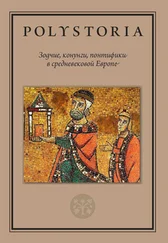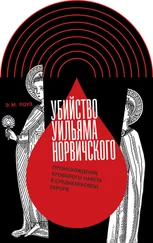Кром М. М. К вопросу о времени зарождения идеи патриотизма в России // Мировосприятие и самосознание рус. о-ва (XI–XX вв). С. 16–30.
Там же. С. 19.
Медведев И. П. Почему Константинопольский патриарх Филофей Коккин считал русских «святым народом»? // Славяне и их соседи. Этнопсихолог. стереотипы в Сред. века. М., 1990. С. 52; Мозер М. Стереотипы Литвы и сведения о ней в древнейших восточнославянских летописях (Новгородская Первая, Лаврентьевская и Ипатьевская летописи) // Studia Slavica Academiae Scientiarum Hungaricae. 2004. Vol. 49. No. 3–4. P. 229–280.
Львов А. С. Лексика «Повести временных лет». М., 1975; Кусков В. В. Древняя Русь: наследие в слове: в 4 кн. Кн. 1: Мир человека. СПб., 2000; Творогов О. В. Лексический состав «Повести временных лет». К., 1984. Слово «народ» трижды встречается в «Повести временных лет», слова «род» и «язык» — многократно, но они почему-то не становятся основой для представлений о natio Ruthenorum.
Агоштон М. Великокняжеская печать 1497 г. К истории формирования русской государственной символики. М., 2005.
Петрухин В. Я. Начало этнокультурной истории Руси IX–XI вв. Смоленск; М., 1995; Он же. О «нечестивых» народах на Страшном суде: эсхатологический и иконографический мотив // Он же. «Русь и вси языци». Аспекты ист. взаимосвязей: ист. — археолог. очерки. М., 2011. С. 302–310.
Седов В. В. Древнерусская народность. Историко-археологическое исследование. М., 1999. C. 219–222 («Об этническом самосознании восточнославянской общности»). (Studia Historica).
Plokhy S. The Origins of the Slavic Nations. Premodern Identities in Russia, Ukraine, and Belarus. Cambridge, 2006.
Например: Русский народ. Терминология, исследования, анализ. Жуковский; М., 2001; Малков Ю. Г. Русь Святая. Очерки истории православия в России. М., 2002; Малков Г. , диакон. Контрреволюция духа. Святая Русь и возрождение России (церковно-политические очерки). М., 2006.
Cherniavsky M. Russia // National Consciousness, History, a. Political Culture in Early-Modern Europe / ed. by O. Ranum. Baltimore; L., 1975. P. 118–143. «Well, what are „we“? What is Russia? Moscow? And implicitly, what are the Russians? I submit, essentially, they are the triad: Autocrat. Orthodoxy, Empire… These strands do not make up a national consciousness; but perhaps we can see them as basic elements of a national subconsciousness, in the sense that they are the bricks out of which the structure of national consciousness was later built» (Ibid. P. 129–130).
Miller D. The Velikie Minei Chetii and the Stepennaia Kniga of Metropolitan Makarii and the Origins of Russian National Consciousness // FOG. 1979. Bd. 26. P. 263–382; Idem. Saint Sergius of Radonezh, His Trinity Monastery, and the Formation of the Russian Identity. DeKalb, 2010.
Bushkovitch P. The Formation of a National Consciousness in Early Modern Russia // Harvard Ukrainian Studies. 1986. Vol. X. No. 3–4. P. 355–376; Idem. What Is Russia? Russian National Identity and the State, 1500–1917 // Culture, Nation, a. Identity. The Ukrainian-Russian Encounter (1600–1945) / ed. by A. Kappeler, Z. E. Kohut, F. E. Sysyn, a. M. v. Hagen. Edmonton; Toronto, 2003. P. 144–161; Бушкович П. Православная церковь и русское национальное самосознание XVI–XVII вв. // Ab Imperio. 2003. № 3. С. 101–117. С работами П. Бушковича перекликается статья: Kohut Z. E. A Dynastic or Ethno-Dynastic Tsardom? Two Early Modern Concepts of Russia // Extending the Borders of Russian History. Essays in Honor of A. J. Rieber / ed. by M. Siefert. Budapest; N. Y., 2003. P. 17–30.
Bushkovitch P. What Is Russia?.. Р. 145.
Ibid. («If I am right, then the identity found in the term „Russia“ was of a type that could be called statist or even dynastic»).
Ibid. P. 147.
Ibid. P. 149.
Ibid. P. 151–152.
В частности, «русский национализм» «had no substantial influence on Russian policy toward the Muslims. The autocratic state remained mistrustful of nationalism… Until the end of the czardom, Russian nationalism did not become a guiding ideology of the state; rather, it was pre-nationalistic and supranational ideas that were decisive for the regime» ( Kappeler A. Czarist Policy toward the Muslims of the Russian Empire // Muslim Communities Reemerge: Historical Perspectives on Nationality, Politics, a. Opposition in the Former Soviet Union a. Yugoslavia / ed. by A. Kappeler, G. Simon, G. Brunner a. E. Allworth. Durham; L., 1994. P. 152). Тезис о «домодерном»(«pre-modern») типе Российской империи — лейтмотив известной и влиятельной книги А. Каппелера о «многонациональности» России ( Kappeler A. Russland als Vielvölkerreich. Entstehung — Geschichte — Zerfall. München, 1993; книга дважды издана и в русском переводе).
Franklin S. The Invention of Rus(sia)(s): Some Remarks on Medieval and Modern Perceptions of Continuity and Discontinuity // Medieval Europeans. Studies in Ethnic Identity a. National Perspectives in Medieval Europe / ed. by A. P. Smyth. N. Y., 1998. P. 181–195; Franklin S., Widdis E. «All the Russias…»? // Nat. Idenity in Russian Culture. An Introd. / ed. by S. Franklin a. E. Widdis. Cambridge, 2004. P. 1–8; Franklin S. Identity and Religion // Ibid. P. 95–116. С. Франклин утверждает, что запутанный вопрос о соотношении религии и «национальной» идентичности в русской истории на самом деле в каком-то смысле очень прост: дело сводится к тому, что церковь монополизировала все каналы выражения «национальных» дискурсов («the issue of „religion and national identity“ in Russian culture, though it can be addressed in elaborate abstract theological terms, is at core very simple. It is not an issue at all. Christianity was introduced partly as a device to facilitate the very process of nation-formation and state-formation, to devise and articulate and provide a spiritual focus for national identity. The Church meant to be and became, in effect, the cultural agency of the State. It held an absolute monopoly of public cultural forms and expression in all spaces which defined what we now call the national. And form and expression were of the essence. The Christian — Orthodox — element was simply a given, a fact of the cultural environment, implicit and explicit in the forms themselves; not a question; not a choice; not an issue» ( Franklin S. Identity and Religion… P. 100). Нужно признать, что вопрос об отличиях древнерусского опыта от западного таким простым образом не решается.
Читать дальше
Конец ознакомительного отрывка
Купить книгу
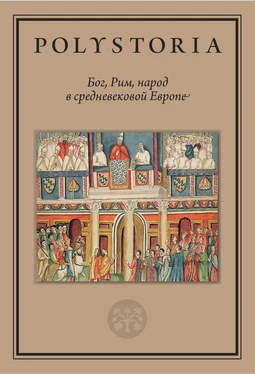
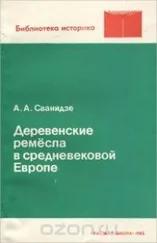
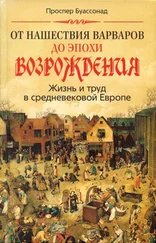

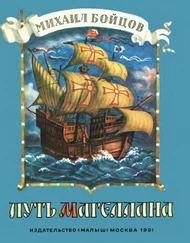
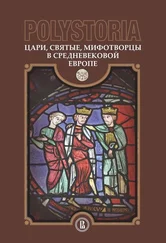
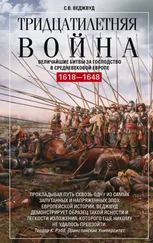
![Ольга Петерсон - Наследники Вюльфингов [предания германских народов средневековой Европы в пересказах Е. Балобановой, О. Петерсон]](/books/394392/olga-peterson-nasledniki-vyulfingov-predaniya-ger-thumb.webp)
![Ольга Петерсон - Рыцари Круглого Стола [предания романских народов средневековой Европы в пересказах Е. Балобановой и О. Петерсон]](/books/399771/olga-peterson-rycari-kruglogo-stola-predaniya-rom-thumb.webp)
